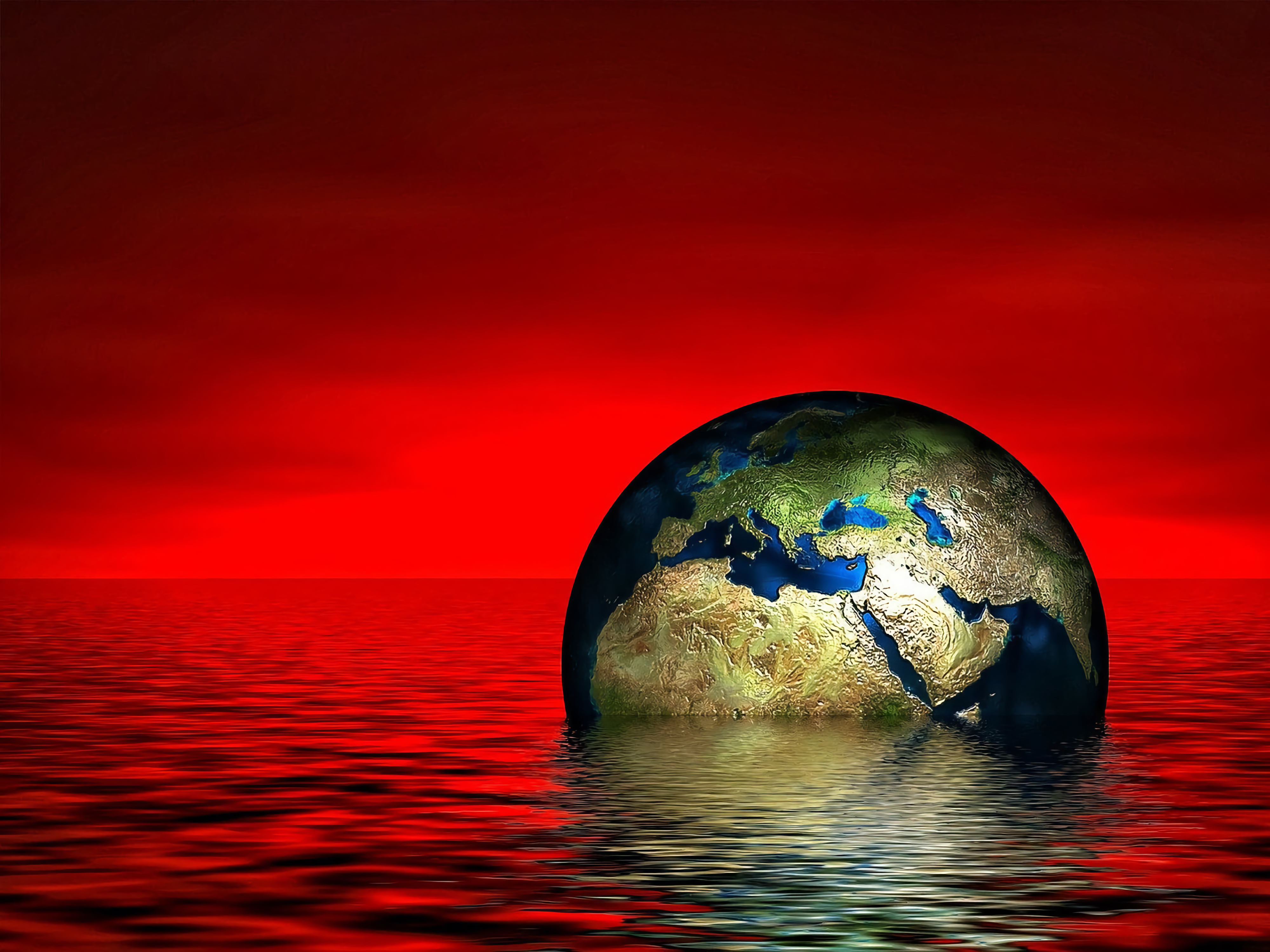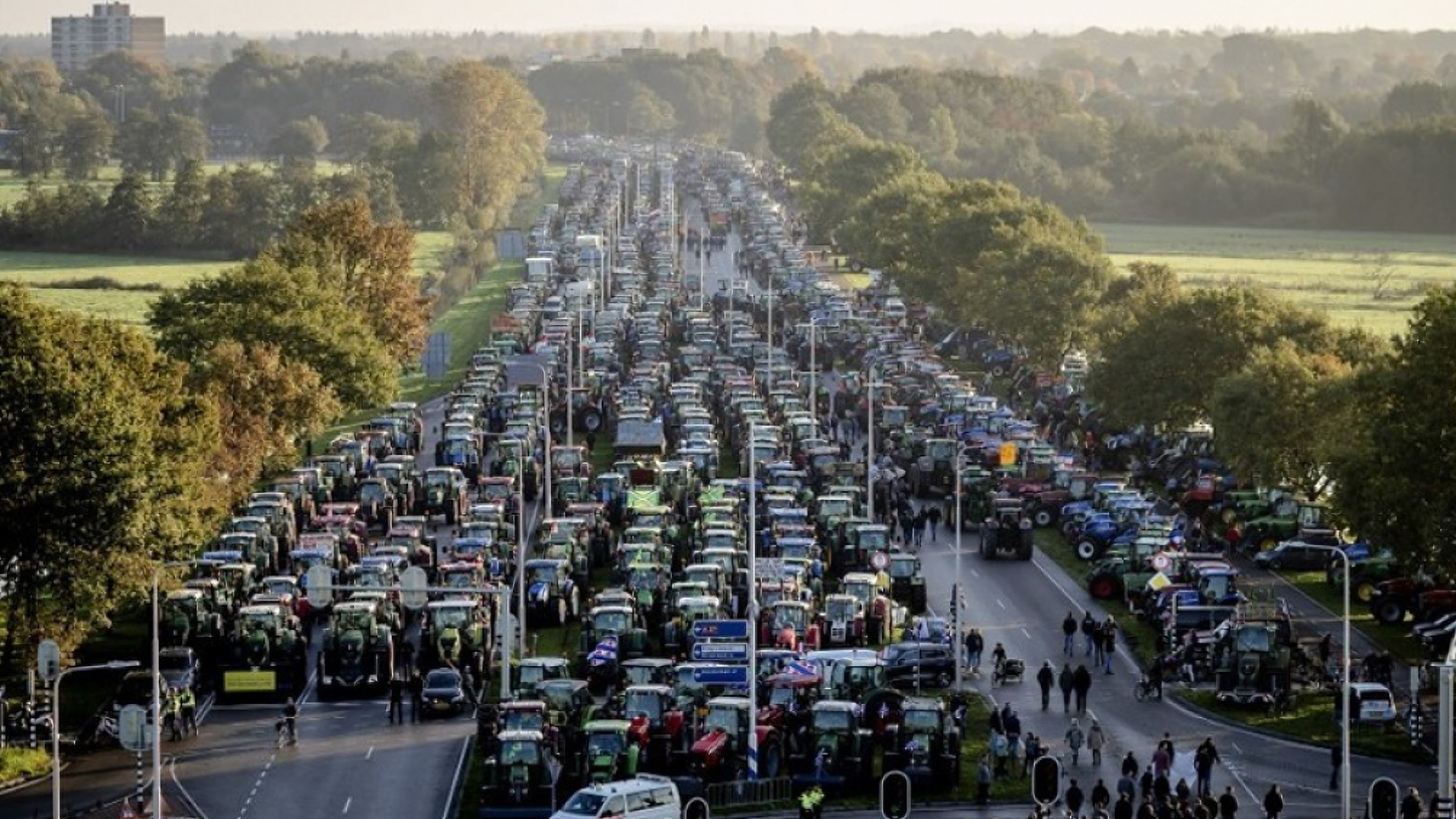


Climate Change is Killing Europe
For the last few decades, the West has been heavily engaged in discussing climate change and its impact on the Earth. While opinions may differ on whether sea levels are rising or if the world is facing an imminent nine-year deadline, Western governments are taking action by implementing policies that affect the working class. It is essential to acknowledge that such policies have consequences, particularly for working people. A case in point is the European Union, which has encountered various repercussions as it strives to address climate change.
Over the past decade, farmers in Western Europe have faced the brunt of certain policies, leading to persistent tensions between them and the EU. The EU’s “set of proposals to make the EU’s climate, energy, transport, and taxation policies fit for reducing net greenhouse gas emissions by at least 55% by 2030, compared to 1990 levels,” has hit the agricultural sector hard. One particular contentious policy involves reducing the usage of nitrate-based fertilizers. The situation was further exacerbated in 2014 when the purchase of fertilizer from Russia was prohibited due to sanctions imposed after Russia’s annexation of Crimea. This led to protests erupting in various European nations, including France, Spain, and Poland.
In compliance with EU regulations, the Dutch government plans to obtain and close down approximately 3,000 farms located near environmentally sensitive regions. The objective is to decrease nitrogen pollution, and if an inadequate number of farms choose voluntary buyouts, the government will require compulsory purchases. Dutch farmers have strongly opposed these measures through numerous protests, including blockading motorways and disrupting events. However, despite these demonstrations, the government’s determination to carry out the closures remains unchanged.
German political commentator Eva Vlaardingerbroek was blunt: “This situation highlights how our government disregards the will of the people. Despite protests and international criticism, they are determined to implement what I consider to be unjust policies. Instead of prioritizing the wishes of its citizens, our government seems to prioritize globalist institutions with a vested interest in controlling the food supply to exert control over us.”
We should expect an increase in statements akin to Vlaardingerbroek’s as awareness grows about how countries such as the United States employ climate change as a pretext to perpetuate the stagnation of other nations.

Keeping the Global South Green and Poor
While African and South American nations continue to face challenges with Western corporations exploiting their resources, this approach is no longer the main tactic employed by imperialists. Instead, there has been a shift towards using environmentalism to hinder countries in the Global South from accessing and extracting their own resources. Nicaragua, a Latin American nation, serves as an example of this trend, as it has been a thorn in the side of the United States ever since the Sandinistas’ victory in 1979.
Since the Spanish colonization era, the construction of a canal in Central America has been a long-standing ambition for many governments. The United States accomplished this goal in 1914 with the Panama Canal, considered a remarkable engineering feat. However, Nicaragua now seeks to have its own canal, providing an alternative route through Latin America. Nicaraguan President Daniel Ortega is a strong proponent of this project. In June 2013, his government swiftly approved the agreement, viewing the canal as the second phase of the Nicaraguan Revolution. Ortega envisioned it as a means to lift Nicaragua out of poverty and create 250,000 job opportunities. The U.S. does not explicitly state opposition to the canal due to its potential rivalry with the Panama Canal. Instead, it takes a different approach by involving environmentalists to raise concerns about the proposed environmental impact, causing considerable uproar.
According to an article from the Smithsonian, the construction of the new canal in Nicaragua, along with its associated infrastructure such as roads, pipelines, and power plants, is projected to impact nearly one million acres of rainforest and wetlands. Robert Stallard, a research hydrologist with The U.S. Geological Survey and the Smithsonian Tropical Research Institute, has expressed concerns, stating that the canal could potentially lead to hurricanes of much greater intensity than anything experienced in Panama. It is worth noting that while the Panama Canal seems to have had minimal negative impact, there are apprehensions about Nicaragua’s project due to its potential to harm wildlife and exacerbate hurricane occurrences. Surely, the involvement of Chinese firms working with the Nicaraguan Government has nothing to do with the Smithsonian’s selective concern.
If you haven’t considered environmentalism as a significant aspect of aggressive foreign policy, you might be surprised to learn about “Green Sanctions.” Economic sanctions have long been known to impact nations like Iraq and Cuba, but they are also evolving with the changing times. According to a report from the Carnegie Endowment for International Peace, a prominent American think tank, “Green Sanctions” could become a prominent feature in the near future.
The report suggests that these sanctions might target individuals involved in activities like deforestation in countries like Brazil or wildlife trafficking in Africa. Alternatively, entire economic sectors, such as the coal industry, could be subjected to such measures. In this scenario, the U.S. government could attempt to make new coal projects financially unfeasible or less profitable by increasing compliance costs. The potential implications of these “Green Sanctions” could have significant effects on both environmental preservation and economic development.
While the “Targeting Environmental and Climate Recklessness Act” has faced a lack of support in Congress, it is likely that this will change in the future as more politicians recognize the advantages of having additional opportunities to impose sanctions on their opponents.
How Long Will People Endure the Green Restrictions and Virtue Signaling?
This intransigence from political figures who propagate environmental fears is a significant reason why farmers across Europe, and many others in society, are pushing back against these policies. It has become evident that the elite have no intention of making significant changes in their own lives to achieve the purportedly necessary environmental goals. Instead, they engage in virtue signaling to the public, urging them to change their ways, while ironically claiming they are not virtue signaling anymore without providing a better alternative. The blame is often directed at farmers, accusing them of excessive nitrate use and raising too many carbon-releasing cattle. This leads to job losses, a reduction in food producers, and ultimately higher grocery prices for consumers.
A recent climate summit involving EU representatives took place earlier this month. There was potential to ease the significant unrest across Europe by addressing the needs of farmers, but it appears that this issue was not mentioned, according to the available summaries on their website. One notable moment during the summit involved Spain’s Ecological Transition Minister, Teresa Ribera, seemingly making an eco-conscious statement by riding her bike to the venue. However, it was later revealed that she had actually traveled in a motorcade and only cycled the final portion for photo opportunities. This hypocrisy highlights the extent to which elites go to demonstrate commitment to their own words, and why many working-class people feel they are being manipulated.
Americans should closely monitor the protests and civil unrest happening in Europe due to the implementation of “green” policies. If the institutions enforcing these restrictions fail to offer a viable pathway for a smooth transition to better technology, the working class should remain skeptical about and resist regulations that affect their livelihoods and daily lives.